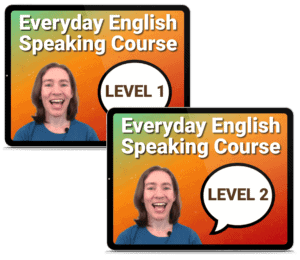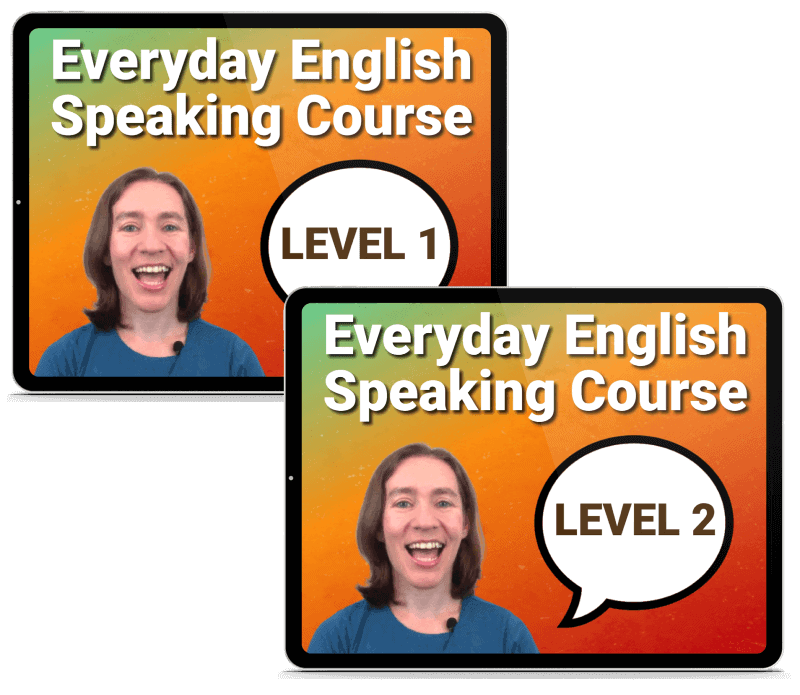
I want you to STOP saying “I don’t like it.”
Why? Well, there’s nothing wrong with that sentence, but English has so many alternatives! So let’s get beyond that basic phrase and learn some other ways to express dislike.
If you’re looking to improve your English speaking and especially expand the number of phrases you know, come join my Everyday English Speaking Course. The lessons teach you exactly what to say in dozens of daily life situations.
It’s our most popular course at Espresso English!
OK, let’s learn some different ways to say you don’t like something.
I’m not crazy about… / I’m not fond of…
You can say “I’m not crazy about it” or “I’m not fond of it.” Maybe you’re looking to buy a house and you’re considering a place that’s painted bright yellow – you might say “I’m not crazy about the color” or “I’m not fond of the color.”

Note the prepositions – we say crazy ABOUT and fond OF. And we can reverse these to talk about something we DO like – “I’m crazy about / I’m fond of” something you enjoy.
I’m not a big fan of… / I don’t care for…
Another similar expression is to say “I’m not a big fan of something.” When describing what kinds of movies you like, you might say “I’m not a big fan of horror movies” – it means you don’t like them.

Or you could say “I don’t really care for horror movies” – saying you don’t care for something is the same as saying you don’t like it. I tried a new flavor of coffee the other day and I really didn’t care for it, it had a strange taste.
It’s not my cup of tea
Speaking of beverages, another expression is “It’s not my cup of tea” meaning it’s not something you like or prefer. I often hear this used to talk about activities – sports or hobbies – or media like books, music, movies. If you hate the outdoors, then you would say “Hiking is not my cup of tea.” We typically do not reverse this expression; we use it only for dislikes.

It’s not for me / It’s not my thing
A couple more phrases are “It’s not for me” and “It’s not my thing.” These phrases acknowledge that your dislikes are your personal preferences, you recognize that other people might enjoy the things you dislike. My grandmother loves knitting, but it’s not my thing.

I’ll pass
When people invite you to do something you dislike, or offer you something you dislike, you can say “I’ll pass.” If you’re afraid of heights and your friends invite you to go skydiving, you’d say “I’ll pass.”

This can also be used for things you don’t necessarily dislike, but you just don’t want in the moment. So if you need to drive soon and you’re offered some strong alcohol, you might say “I’ll pass” because you don’t want it at the moment, even though you might accept it another time.
I can’t stand it
If you REALLY don’t like something, you can say “I can’t stand it.” This is a stronger expression. I can’t stand it when people drive while texting on their cell phones, it’s so dangerous!

I find it… (boring / annoying)
Finally, if someone asks you why you’re not a fan of something, why you don’t like it, you can use the phrase “I find it… “ and then complete it with an adjective like boring or annoying.
I’d rather…
A more positive way to respond would be to say “I’d rather…” and then say what you would prefer. For example, someone asks you why you don’t like running for exercise; you could say you have an old knee injury and you’d rather go swimming because it’s lower impact on your knees.

Now put it into practice – try writing some sentences about things you dislike, using the phrases you learned today.
When you join my Everyday English Speaking Course, you’ll get the opportunity to send in recordings of yourself speaking – and our teaching team will listen to them and reply with comments and corrections. It’s a fantastic way to practice and get personalized feedback.


